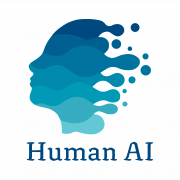Human AI obtains ISO Certification 27001
More security, more trust, more ethical
Human AI has obtained ISO/IEC 27001 international certification, a milestone that confirms our commitment to information security, the ethical use of artificial intelligence and the trust of the people who rely on our technology.
What is the ISO Certification 27001?
ISO/IEC 27001 is the most widely recognized international standard for information security management. It certifies that an organization protects data in a systematic, rigorous and secure way, in accordance with international standards and based on a detailed risk analysis.
In the words of Noelia Sanz, quality manager at Human AI:
“The ISO 27001 certificate guarantees our customers and stakeholders an Information Security Management System associated with the development, implementation and support of Human AI.”
Why is it important for Human AI?
Because we work with sensitive information: from student data to talent selection processes. And we do so with a clear vocation for social impact, educational innovation and digital transformation.
Certification:
- Reinforces our commitment to ethical, people-centered AI.
- Recognizes our commitment to personal data protection.
- Aligns our processes with international regulatory requirements.
- Reduces legal risks and ensures business continuity.
Security as a technological basis
For Roberto Álvarez, CTO of Human AI, this achievement is essential:
“Having ISO 27001 certification is essential for a CTO, as it establishes a systematic security management framework based on risk analysis and international standards, which strengthens data protection, standardizes processes and assigns clear roles to prevent incidents.”
And he adds:
“It generates confidence in customers, partners and investors, facilitates access to new markets by meeting regulatory requirements, reduces legal risks and supports business continuity, enabling the organization to adapt nimbly to emerging threats in the digital age.”
An artificial intelligence that protects
Obtaining ISO 27001 certification is not just a seal. It is a firm step in our mission to develop responsible technology, aligned with high international standards and with a human approach.
Thanks to the team that has made it possible… and to those who walk with us in this purpose.
Want to know more about Human AI?
Write us at hola@humanaitech.com or request a demo: https://tu-demo.humanaitech.com/





